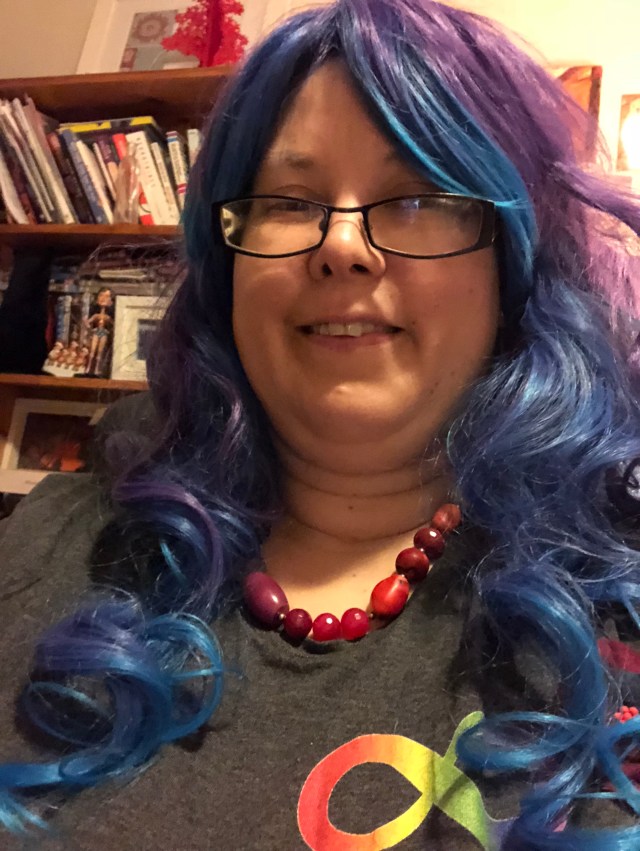I imagine that many of you will have heard this statement… ’Find your tribe!!’ This is a statement that autistic adults – and sometimes kids – are told. The Autistic ‘tribe’ or neurodivergent peer group is a place where you will be accepted. When you find your tribe your sense of autistic pride, self-esteem and value will increase. When you get embrace your autism your whole life will change and you will accept who you are and lots of other good things. Sounds like a very good thing, and this does seem to be what happens for many of us.
But what happens for people who do not ‘find their tribe’? What about people who are autistic and for a variety of reasons they cannot accept it or be positive about it? What about when your memory of being ostracised and bullied makes you want to keep ‘acting’ and ‘masking’ in terror that if you are ‘out’ as autistic that bullying and abuse will get worse? For many people finding their tribe is not at all easy.
I have a personal story about this very issue. For the past 13 years I have been as very out loud and proud, visible autistic advocate but for seven years after I was diagnosed I couldn’t even entertain the notion that I might be autistic. While deep down I knew my then recent diagnosis fairly accurately described my experience, it was just too hard to imagine that I was autistic. I was diagnosed in 1994. When I was diagnosed the diagnosis was very new. Almost nobody, including many mental health clinicians, had heard of this thing called Asperger syndrome. My parents were told that Asperger’s was incredibly rare and that only one in 25 people diagnosed with Asperger Syndrome were women and girls (I didn’t know about non-binary gender then so saw myself as a kind of woman by default). I was a rebellious and very troubled twenty-something when I was diagnosed. I had spent years trying to distance myself from the ‘nerd’ tag I had been victimised because of in school. My diagnosis meant a number of things to me, and none of them were good. Consciously I thought it was my parents making excuses for my poor behaviour. I was doing my best social chameleon act in order to fit in with the world I found myself in. From the limited information I had, it seemed Aspergers was a diagnosis of being a nerd. To my mind it meant that I was destined to be a nerd all my life and there was nothing I could do about it. When I was being bullied in school, a lot of the attacks also centred around any apparently having an intellectual disability. At the time, my limited understanding of autism was that it was an intellectual disability. You can probably understand why I felt trapped by the diagnosis rather than liberated.
My eventual acceptance of my diagnosis was very closely bound up in my perception of myself. Twenty-something Jeanette had hated themselves. They had a very low self image and actively sought out negative things. It was somewhat telling that the moment I accepted my autism was when I was in second year of university. I had just won an award for being top of my year in a class and was feeling more confident than I ever had before. ‘Maybe I should check out that autism thing?’ I thought so set about doing so. I remember watching a video by Dr Wenn Lawson – who is now a good friend – and he was saying things about his experience which resonated strongly with me. I started what was actually quite a lengthy process of accepting and valuing myself as autistic.
I didn’t suddenly write my life story and start giving presentations on autism. For me it was still a difficult truth to accept. I spent the next few years being quite shy about discussing my autism. I felt like everyone I told would probably hate me for it. I had internalised a lot of ableism. The turning point was when I met my mentor and most positive influence Polly Samuel who encouraged and supported me to write my life story. Thankfully everything sort of aligned and when the book was released and media outlets were asking me to talk about my story I was in a good place to do so. Now I am quite likely to discuss autism with a taxi driver or a receptionist at the doctor’s office! I am very much so out loud and proud Autistic. I have found my tribe and it is good, even if it took me a bit longer to find it than most.
I suppose what people can take from this is that people have complex histories and circumstances which may make it hard to accept that they are autistic.
I have had many interactions with people who feel unable to connect with the ‘tribe’ for various reasons and many others who are taking their time much like I did when I was younger. People do not have to conform to any particular journey for accepting and embracing their autism. It is a good thing for autistic people to accept who we are simply because being autistic is a fundamental way of being but people struggling to find their tribe do not need to feel bad about this. It is not a reason for judgement or a character flaw. Life is a journey. In my journey I spent a good ten years either not accepting or being very coy about my autism and now I am doing all the advocacy work I do and hopefully promoting positive things like autistic pride. We are all at a point on our journey and that is OK, but I am very glad to have embraced who I am as it feels right.

